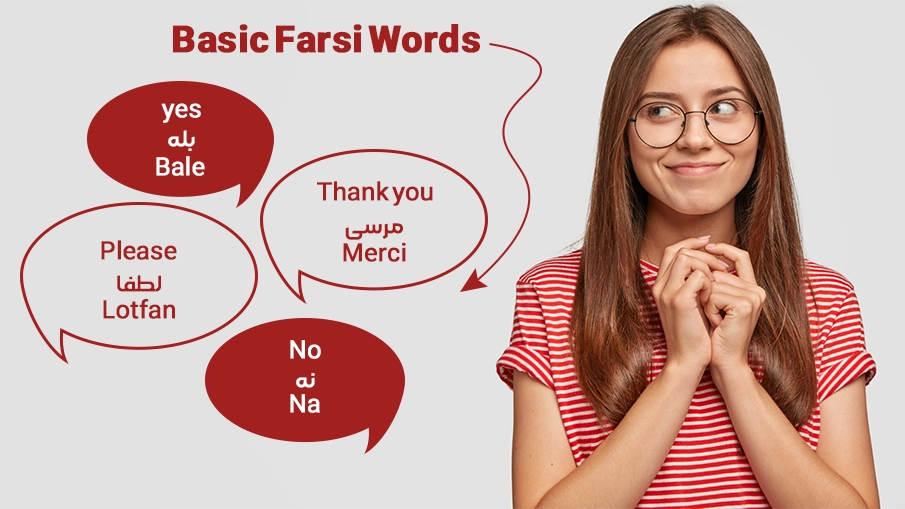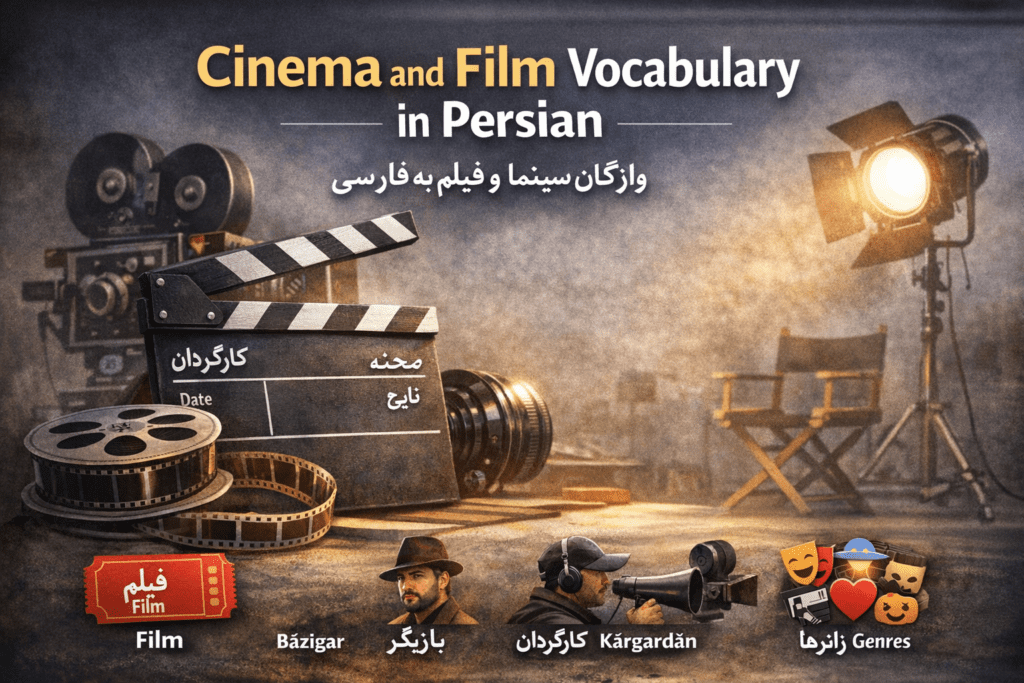Learning Farsi, Iran’s beautiful and poetic language, opens the door to understanding Persian culture, traditions, and history. Whether fascinated by the ancient Persian Empire, captivated by Persian poetry, or planning a trip to Iran, learning the Farsi language offers incredible insights into a vibrant world.
This guide will help you learn common Farsi words and phrases, basic Persian vocabulary, Farsi pronunciation tips, and more to kickstart your journey.
In this blog post, we’ll explore the Farsi language in a beginner-friendly way. We’ll cover common Persian words, useful phrases, tips for pronunciation, and even the cultural significance behind certain Farsi expressions.
Whether you want to learn essential Farsi words or improve your Persian conversation skills, this post covers you.
Shall we dive in?
Farsi Language: A Brief Overview
Farsi, or Persian, is the official language of Iran, with around 110 million speakers worldwide. It’s a branch of the Indo-Iranian language family, making it one of the most significant languages in the region. Farsi is written in the Persian writing system, which uses a variation of the Arabic script with distinct sounds and letters.
Although Farsi is the dominant language in Iran, it’s also spoken in parts of Afghanistan (as Dari) and Tajikistan (as Tajik). Learning this language helps with understanding Iranian culture and broadens your communication within Central Asia.
Common Farsi Words and Phrases

To get you started, here are some common words and phrases in the Farsi language:
Common Farsi Greetings:
-
- Salam (سلام) – “Hello”
-
- Khodā hāfez (خدا حافظ) – “Goodbye”
-
- Hālet chetore? (حالت چطوره؟) – “How are you?”
-
- Bālesh (با لِش) – “You’re welcome”
Farsi Vocabulary and Grammar
Farsi grammar is generally more straightforward than many other languages because it lacks gender for nouns and doesn’t use articles like “the” or “a.” However, the verb conjugations can be tricky, so it’s important to practice often.
Key Persian Vocabulary:
-
- Eshq (عشق) – “Love”
-
- Zendegi (زندگی) – “Life”
-
- Shirini (شیرینی) – “Sweets”
If you want to expand your vocabulary further, beginner Farsi lessons or online Persian dictionaries can be invaluable resources. The more you expose yourself to Persian words, the faster you’ll develop your skills.
Understanding Farsi Pronunciation
Farsi pronunciation can be challenging, particularly for beginners. Some of the sounds used in Farsi don’t exist in English, so you’ll need to train your ear to identify and mimic these unique sounds.
For example, the “gh” sound in ghazal (غزل) (meaning “poetry”) is a throaty, guttural sound that doesn’t have a direct English equivalent. But don’t worry, practice makes perfect! Try listening to Persian speakers or using online Farsi courses to refine your pronunciation.
Significance of Common Farsi Words
Persian words carry deep cultural significance, and learning them can give you a window into Iranian society’s rich traditions and values. For example, naz (ناز) refers to affectionate, flirtatious behavior deeply woven into Persian social interactions.

Basic Farsi Words:
-
- Baleh (بله) – “Yes”
-
- Na (نه) – “No”
-
- Merci (مرسی) – “Thank you” (borrowed from French)
-
- Lotfan (لطفاً) – “Please”
These expressions will help you with basic Farsi conversations, giving you a solid foundation as you start to speak Persian.
Tips for Farsi Language Learning
- Practice Daily: Regularly using Farsi words in conversation is key if you can, try to chat with native speakers or even engage with Persian media, such as films or music.
- Use a Persian Dictionary: Expand your Persian vocabulary by regularly consulting an online or physical Farsi dictionary. It’s beneficial when you’re stuck on a word.
- Watch for Context: Many Persian words change meaning depending on the context in which they’re used. For instance, ghorboonat beram (قربونت برم) can mean “I’d die for you,” but it’s often used casually to show affection.
- Enroll in Online Courses: Numerous online Farsi courses provide structured learning experiences for both beginners and advanced learners. These courses often include interactive lessons, quizzes, and conversation tips that help solidify your language skills.
Common Farsi Phrases and Expressions
Here are a few more common Farsi phrases you can use in daily conversations:
-
- Man farsi harf nemizanam (من فارسی حرف نمیزنم) – “I don’t speak Farsi.”
-
- Bebakhshid (ببخشید) – “Excuse me.”
-
- Haletun khoobeh? (حالتون خوبه؟) – “Are you okay?”
These will help you navigate everyday situations in Persian-speaking areas and make interactions smoother!
Ready to Learn More? Join Danaa School’s Farsi Courses!
If you’re excited about learning Farsi, consider taking the next step with Danaa School’s Farsi Learning program. From beginner lessons to advanced vocabulary, they offer structured courses to boost your language skills. Whether you want to learn how to write Farsi or improve your pronunciation, Danaa School’s courses are a great way to immerse yourself in the Persian language. Enroll now.
Find Your Ideal Teacher
At Danaa School, you can choose your Farsi tutor from a selection of qualified and experienced teachers. Begin an exceptional journey into the world of Persian language!
Book Your Trial Lesson
FAQs
What are some Persian phrases?
Some key Persian phrases include “Salam” for “hello,” “Khodā hāfez” for “goodbye,” and “Bālesh” for “you’re welcome.”
What are Farsi language words?
Common Farsi words include “Baleh” (yes), “Na” (no), and “Merci” (thank you).
What is the Farsi word for love?
The Farsi word for “love” is Eshq (عشق).
Is Farsi an easy language?
Farsi can be easier than other languages in terms of grammar but challenging in terms of pronunciation. Consistent practice is key!
How do Iranians say hello?
Iranians greet each other by saying Salam (سلام).
How to be polite in Persian?
Using phrases like Lotfan (لطفاً) for “please” and Merci (مرسی) for “thank you” shows politeness. Additionally, knowing how to say Bebakhshid (ببخشید) or “excuse me” goes a long way in formal settings.
Conclusion
Whether you’re fascinated by the elegance of Persian literature, intrigued by the nuances of Farsi expressions, or simply eager to expand your global communication skills, embarking on this journey will be both enriching and rewarding.
By practicing daily, immersing yourself in Persian media, and exploring courses like those offered by Danaa School, you can build a strong foundation and grow your confidence in speaking Farsi.
Begin your Persian language adventure today and uncover a world of beauty, history, and connection. Get started now.
Want to Learn Farsi at Danaa School?
Here are the best resources for you!









